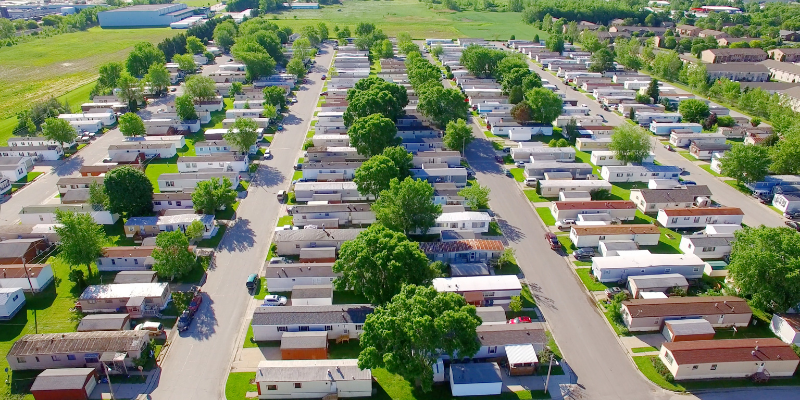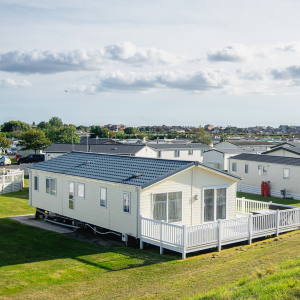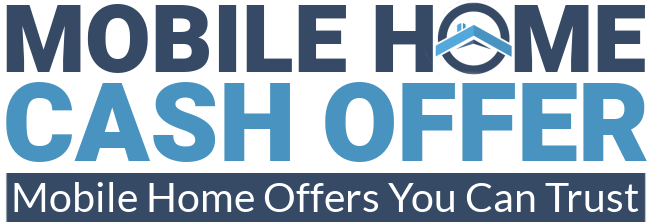
Understanding Mobile Home Park Lot Rent: Key Factors to Consider
When considering mobile home park lot rent, homeowners should be aware of a few crucial elements that can significantly impact their financial planning and overall pleasure. Understanding the components of lot rent is critical, as they often include fees for land use, maintenance services, and access to community facilities.
Homeowners should carefully review their lease agreements to determine what expenses include water, sewer, garbage pickup, and lawn care. It is also crucial to examine the mobile home park’s location; parks in desirable locations or near metropolitan centers frequently charge higher rents due to increased demand.
Furthermore, homeowners should look into any potential annual increases in lot rent and the conditions under which they occur. Knowing the mobile home park’s reputation and management practices can help you predict how well-maintained and secure the environment will be.
Local market trends and regional economic conditions can significantly impact rental pricing and should be considered part of a complete examination when analyzing lot rent obligations. If you’re stuck due to high rent or park rules, Mobile Home Cash Offer provides a stress-free way to sell your mobile home for cash in Texas, helping you transition to a better solution without hidden fees or lengthy delays.
How Location Influences Mobile Home Park Lot Rent Prices
Location is a significant factor in determining mobile home park lot rent pricing. Due to greater desirability and competition for available sites, lot rents tend to be higher in places with high demand and limited space, such as cities or suburbs.

The proximity to amenities such as retail malls, schools, public transit, and healthcare facilities can also raise lot rent prices because these conveniences improve tenants’ quality of life. Furthermore, mobile home parks in areas with strong economic growth or near employment hubs frequently face higher lot rents as more individuals seek accommodation close to job possibilities.
On the other hand, rural areas or those with slower economic development may have cheaper lot rents due to lower demand and more land supply. Local real estate market circumstances and property taxes can also impact lot rent costs, as greater property values typically result in increased expenses for park owners, which are then passed on to renters via higher rates.
If you’re considering relocating to a more budget-friendly area, Mobile Home Cash Offer can help you buy mobile home for cash in North Carolina, where lot rents are often lower and communities offer a relaxed pace of life.
Comparing Lot Rent Costs Across Different Mobile Home Parks
When comparing lot rent charges across different mobile home parks, it’s important to consider the numerous elements that influence these expenses. Location is essential; mobile home parks in urban areas or near popular services have higher lot rents than those in rural settings.
The size of the lot and the park’s overall infrastructure can also influence costs, with larger lots or parks that offer extensive amenities such as swimming pools, clubhouses, and recreational areas often costing more. Furthermore, some mobile home parks include utilities like water, sewer, and trash collection in their lot rent, whilst others may charge these services separately, impacting the overall cost.
Assessing the park’s management quality and community vibe is also necessary. Well-maintained and professionally managed parks frequently justify higher rents with improved amenities and living conditions. By thoroughly investigating these factors, homeowners may make informed judgments when comparing lot rents in different mobile home communities.
The Effect of Amenities on Mobile Home Park Lot Rent
Amenities considerably impact mobile home park lot rent and the community’s value and attractiveness. Parks with numerous amenities like swimming pools, exercise centers, playgrounds, and clubhouses usually fetch higher lot rents.
These characteristics improve inhabitants’ quality of life by offering recreational opportunities and encouraging a sense of community. Additionally, well-maintained infrastructure, such as paved roads and efficient utility systems, contributes to higher lot rents by ensuring homeowners’ safety and convenience.
Security features, such as gated entry or on-site security staff, impact rent costs by providing residents with peace of mind. The provision of amenities attracts potential purchasers and boosts overall resident happiness, justifying the higher price of living in amenity-rich mobile home parks.
Finally, facilities are essential for homeowners to consider when determining lot rent in mobile home parks.
Tips and Strategies for Negotiating Lot Rent in a Mobile Home Park
Negotiating lot rent in a mobile home park needs careful planning and practical communication skills. Understanding your area’s market dynamics and average lot rents will help you deal more effectively.
Begin by researching comparable mobile home parks to understand regular pricing, which will help you make a strong case. Building a positive connection with park management is critical; honest communication about your problems and requirements can lead to mutually beneficial solutions.
Highlighting any improvements or reliability as a tenant might also help your case. Discussing prospective long-term agreements or lease renewals is beneficial, as these possibilities may appeal to park owners seeking consistent occupancy.
Don’t be afraid to seek guidance from tenant associations or local housing authorities to learn about legal safeguards to help you negotiate if necessary.
Hidden Fees in Mobile Home Park Lot Rent: What to Look for
Homeowners should be aware of hidden fees that may suddenly increase the price of mobile home park lot rent. Often, mobile home park agreements include charges that are not immediately obvious.
These can include everything from maintenance and utility costs to administrative expenses and unexpected assessments for community renovations or repairs. Some parks may charge additional fees for amenities such as swimming pools, clubhouses, or recreational facilities, even if you do not use them regularly.
Utility surcharges may also be applied to ordinary lot rent to cover water, sewage, trash collection, or energy usage above a specified maximum. It is critical to properly check your lease agreement and ask management about any potential additional fees that may develop throughout your tenure.
Understanding these hidden costs is critical for preventing surprises and clearly showing your monthly spending while living in a mobile home park.
How to Budget for Monthly Lot Rent in a Mobile Home Community
Budgeting for monthly lot rent in a mobile home park is critical for homeowners who want to preserve financial stability. Understanding the components of lot rent, which typically include charges for land usage, standard area upkeep, utilities, and, in some instances, property taxes, allows residents to plan more successfully.

Homeowners should first study their lease agreement to determine the specific breakdown of expenditures related to their lot rent. They should also consider anticipated annual rent increases caused by inflation or community improvements.
Creating a thorough budget that includes funds allocated explicitly for lot rent helps prioritize this expense among other critical costs, such as utilities, insurance, and savings. Addressing these balances early for those facing unpaid lot rent during a home sale can prevent complications with park management or potential buyers. By staying current on changes to mobile home park policies or fees, homeowners can adapt their budgets and avoid unexpected financial strain.
Setting aside a contingency fund might also provide peace of mind if unforeseen expenses arise while living in a mobile home community.
The Importance of Land Lease Agreements in Setting Lot Rent
Land lease agreements are essential in determining the monthly rent for the site beneath a mobile home, and they play a crucial role in the homeowner’s overall budget. Through these agreements, the park owner and the resident formalize the terms by which the homeowner secures the ground, clarifying who is responsible for what and setting the financial parameters for the tenancy.
Typical clauses cover the specific lot number, shared amenities available to the homeowner, and the operator’s responsibilities, whether maintaining roadways, mowing common areas, or handling snow removal. The negotiated monthly rent—including any scheduled rent increases a resident can expect—will be spelled out so that both sides have a clear record.
Many agreements also delineate who pays for utilities, how property taxes are allocated, and any extra fees for services, all of which feed into the homeowner’s monthly outlay. Therefore, carefully reading and comprehending these documents is vital; they allow the resident to anticipate costs and budget for the years ahead.
Land lease agreements set out rights and duties in precise legal language to reduce the likelihood of disputes and foster a cooperative atmosphere in the community. Understanding the mechanics of these documents and their direct link to the rent charged is an essential first step for homeowners who want to feel secure in their housing choice.
Exploring the Legal Aspects of Mobile Home Park Lot Rent Increases
Homeowners must understand how the law handles mobile home park lot rent increases. Most states impose clear rules on the timing and size of such hikes to guard residents against surprise or excessive charges.
Typically, these rules oblige landlords to send formal written notice of the planned increase well in advance—60 or 90 days before the new amount kicks in. Several jurisdictions cap the amount by tying the allowable raise to an inflation index or similarly recognized economic measure.
In addition, local governments and nonprofit advocacy groups frequently set up tenant assistance networks to help residents understand their rights and to combat unfair charges. Homeowners should familiarize themselves with the applicable statutes and, when in doubt, consult an attorney versed in housing law.
Careful review of the lease is also vital, since it may contain language governing how and when rents can be adjusted. When residents understand the law and lease terms, they can negotiate and defend themselves against unreasonable lot rent increases. Additionally, exploring the lifespan and durability of mobile homes can help residents make informed decisions about long-term affordability and maintenance needs within their community.
Understanding Utility Costs and Their Influence on Total Lot Rent
When comparing mobile home park lot rents, homeowners must consider utility costs. Utility fees—including water, sewer, electricity, gas, and garbage collection—can markedly raise the monthly expense of park living.
The charges may be bundled with the lot rent or billed separately, depending on park rules. Homeowners should clarify which services, if any, are covered by the rent itself and which ones require extra payments.
In some parks, a flat utility allowance is included in the rent. In other areas, a metering system charges homeowners based on actual consumption. That difference can shift the monthly payments and the long-term cost of living.
Additionally, variability in regional utility rates may further affect the total cost of lot rent. By grasping these factors, homeowners can accurately evaluate their financial commitments and choose a mobile home park that aligns with their budgets and lifestyle needs.
Senior Discounts and Other Ways to Lower Your Mobile Home Lot Rent
Many mobile home park residents, especially seniors on fixed incomes, can ease budget pressures by exploring ways to lower their lot rent. Some parks offer senior discounts that cut monthly charges for those who qualify, but management might not always advertise this option.
For homeowners, the first step is a conversation with park management, who can clarify eligibility and the documents needed. Joining a resident association or local senior group often uncovers additional savings, from group insurance plans to low-cost social events designed for older neighbors.
People can negotiate lease terms; sometimes, a simple request for a reduced rent or a more forgiving payment schedule can yield savings. State and federal assistance programs for low-income mobile home residents might provide utility credits or property tax relief. With tenacity and teamwork, seniors can secure the relief that keeps their home affordable.
What Is the Average Cost of Lot Rent?
Lot rent in mobile home parks can shift quite a bit based on where you are, what the park offers, and the overall condition of the park itself. On average, you’ll generally see lot rent in the U.S. fall between $200 and $800 monthly.

In booming markets—think coastal cities or growing urban hubs—lot rent often climbs, driven by higher land prices and more folks wanting the space. You’ll likely find lower monthly rates in the country or smaller towns. Typically, lot rent takes care of basic upkeep of the common areas, road repairs, and, in some parks, core utilities like water and sewer. Still, the extra features—like a pool, playground, or clubhouse—can vary quite a bit from one park to the next.
If you’re planning to move to a mobile home park or are a current resident reconsidering your budget, it pays to keep these details in mind. A clear-eyed budget will let you find a community that fits your needs without stretching your finances. Spend some time comparing lot rents across different parks in the area you’re eyeing; that way, you’ll get a solid sense of what a reasonable monthly rent looks like and feel more confident about your next living decision.
What Is the Average Ground Rent for a Mobile Home?
Ground rent for a mobile home can vary greatly depending on where you are, what the park offers, and whether or not the area is in demand. Across the U.S., monthly rates for a mobile home lot tend to fall between $200 and $800.
Prices tend to creep up when you’re close to cities, and when basic utilities like water and sewer are already in place. Parks with extras, like a pool or a community room, charge a bit more, too. For instance, parks in hot markets like California or Florida will likely have higher rent than in rural settings.
Typically, the lot rent covers things like trash pickup and keeping the common areas tidy, which can soften the overall hit to your wallet. For homeowners intending to keep their budgets on track, it’s smart to pay attention to these rates and what’s included so they can maximize the payoff of living in a close-knit community.
By digging into local figures and lining them up against national averages, you can hone in on the best spot for your mobile home and get the most bang for your buck.
Whether you’re looking to escape rising lot rents, relocate to a more affordable community, or simply sell fast without the hassle, Mobile Home Cash Offer is here to help—providing quick, reliable solutions for mobile homeowners across the country. Contact us at 214-444-6375 today to get your offer!
Helpful Mobile Home Blogs
- Why is selling a mobile home so hard?
- Can You Sell a Mobile Home in a Flood Zone
- What Happens To Your Mobile Home During An Eviction?
- Can A Mobile Home Park Legally Seize Your Home?
- Do You Need A Lawyer To Sell Your Mobile Home?
- Expert Guide To Mobile Home Appraisals
- Legally Removing A Mobile Home From Your Property
- How to Sell a Mobile Home With a Lien
- Selling A Mobile Home Without Inspection
- What Does A Mobile Home VIN Number Look Like
- Selling a Mobile Home That Needs Repairs
- Selling a Mobile Home with Mold Issues
- Can You Sell a Mobile Home Without a Title?
- The Complete Guide to Selling an Inherited Mobile Home
- How Much Does It Cost to Move a Mobile Home in 2025
- Can You Transfer a Mobile Home Title Online?
- How to Sell a Mobile Home Without Land Fast
- How to Winterize a Mobile Home That Is Vacant
- Top Flooring Choices For Enhancing Your Mobile Home
- Guide To Repairing And Maintaining Mobile Home Furnaces
- Understanding Mobile Home Park Lot Rent
- Mobile Home Dealer Vs. Real Estate Agent
- Effective Strategies For Preventing Water Leaks In Mobile Homes
- Understanding The Width Of Single-Wide Mobile Homes
- Discovering The Manufacturing Date Of Your Mobile Home

| MICHIGAN | >MICHIGAN | STATE OF MICHIGAN | RENTALS | RENTED | RENTING |
| LEASING | LEASE OR RENTAL AGREEMENT | TAX PAYMENT | INFORMATION | RENTAL AGREEMENT | RENTAL AGREEMENT |
| UTILITY SERVICES | PUBLIC UTILITY | INVESTMENT | EQUITY | DOLLAR | STATISTICS |
| SNOW | OWNERSHIP | NOTHING | MIDWEST | LOAN | LEGISLATURE |
| LANDSCAPING | INTERNET | INCOMES | AFFORDABLE HOUSING | FOR MOBILE HOME |
